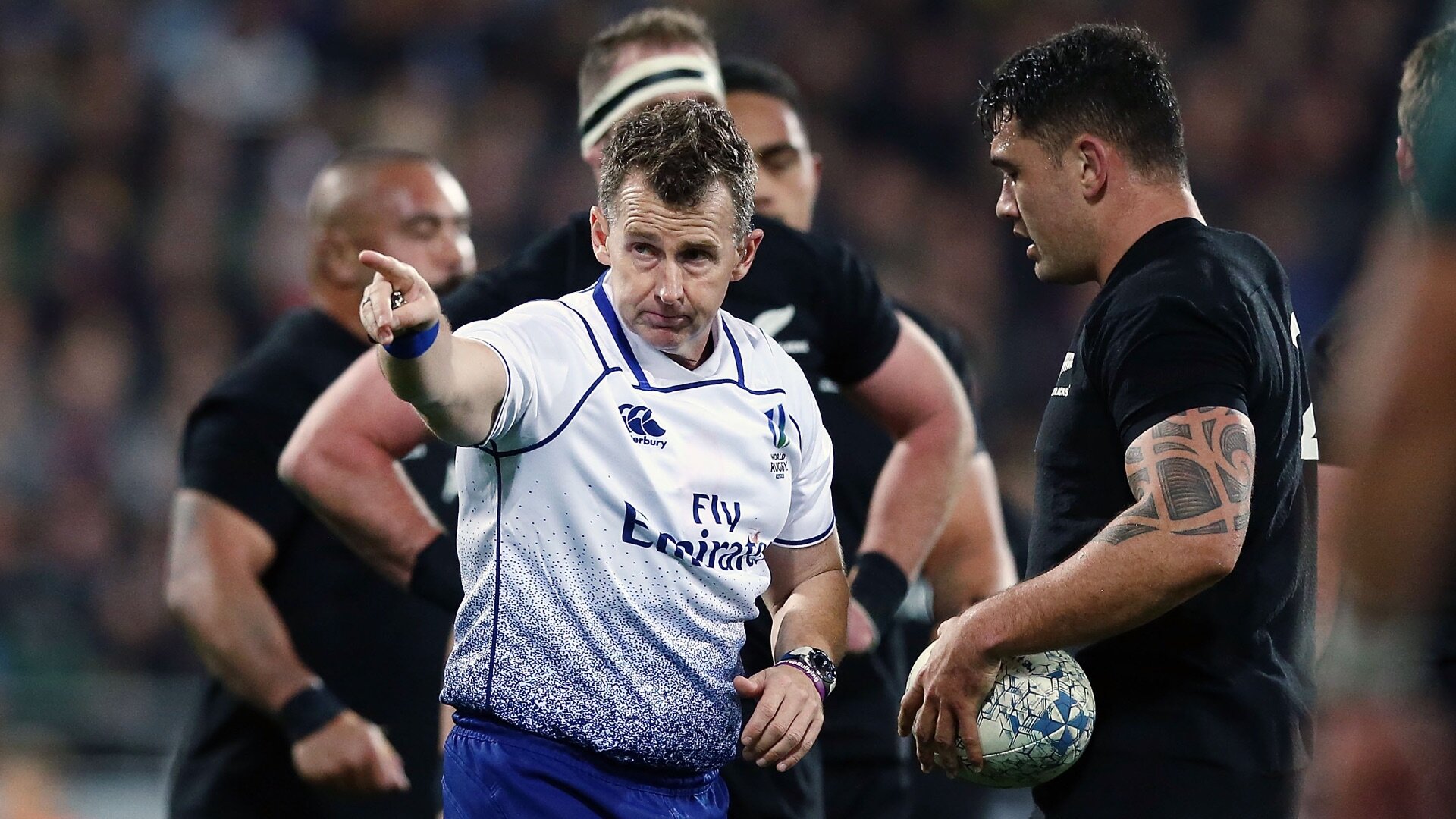Another week, another law tweak by World Rugby

World Rugby have announced what they claim is a minor amendment to the television match official (TMO) protocol within Law 6 to provide the match official team with greater decision-making support when applying the high tackle sanction framework for dangerous shoulder charges and high tackles.
With the countdown on towards the World Cup, it seems not a week is going by without some sort of law tweak. Only recently, an edict was issued regarding the restarting of play when a player is leaving the pitch for a head injury assessment.
That tweak followed England’s complaints about the decisive try scored by Wales’ George North in a warm-up match in Cardiff.
This latest change – which is operational immediately – will make it mandatory for the TMO to now be involved in the verification process to confirm any red card decisions which are linked to the referee’s use of the framework as follows:
- 4.6: If the referee determines that a dangerous high tackle or shoulder charge warrants a red card, then the referee must first verify the decision with the TMO. Both the referee and TMO should use the high tackle sanction framework to determine whether a red card is a correct sanction.
“It is what it is. As long as it’s ironed out and doesn’t happen in the future” #rwc2019 ? https://t.co/mdmzdTskdC
— RugbyPass (@RugbyPass) August 18, 2019
This amendment to aid decision-making follows an initial review of progress since the framework’s implementation in May 2019 by the international federation’s executive committee with the objective of ensuring that the important player welfare initiative continues to optimise clear and consistent officiating.
The amendment will enable the match officials to have full use of the comprehensive Hawkeye technology that will operate at World Cup 2019 to support on-field decision making.
In a statement, World Rugby said: “The committee has given its full backing to the process, its implementation by the match officials and has endorsed the continued close collaboration and communication between coaches, players and match officials ahead of the World Cup.
The debate over Rob Kearney's collision with England's Tom Curry last Saturday is still going on
https://t.co/W5adGYxhvG— RugbyPass (@RugbyPass) August 28, 2019
“World Rugby is committed to reducing the risk of injury in the sport. The high tackle sanction framework was developed in collaboration with unions, coaches, players, referees and medics to drive consistency and simplicity to the process of identification and sanctioning of dangerous foul play that carries the greatest risk of head injury.
“It is intended to change player behaviour from positions of high risk to low risk, by the promotion of good technique.
“The amendment will further promote consistency and accuracy of decision-making, supporting referees in this critical player welfare and match-management area.”
WATCH: This new season’s first episode of Don’t Mess With Jim, the RugbyPass weekly series, features Jim Hamilton previewing the World Cup, the best and worst haircuts in the world of rugby and much more



































































